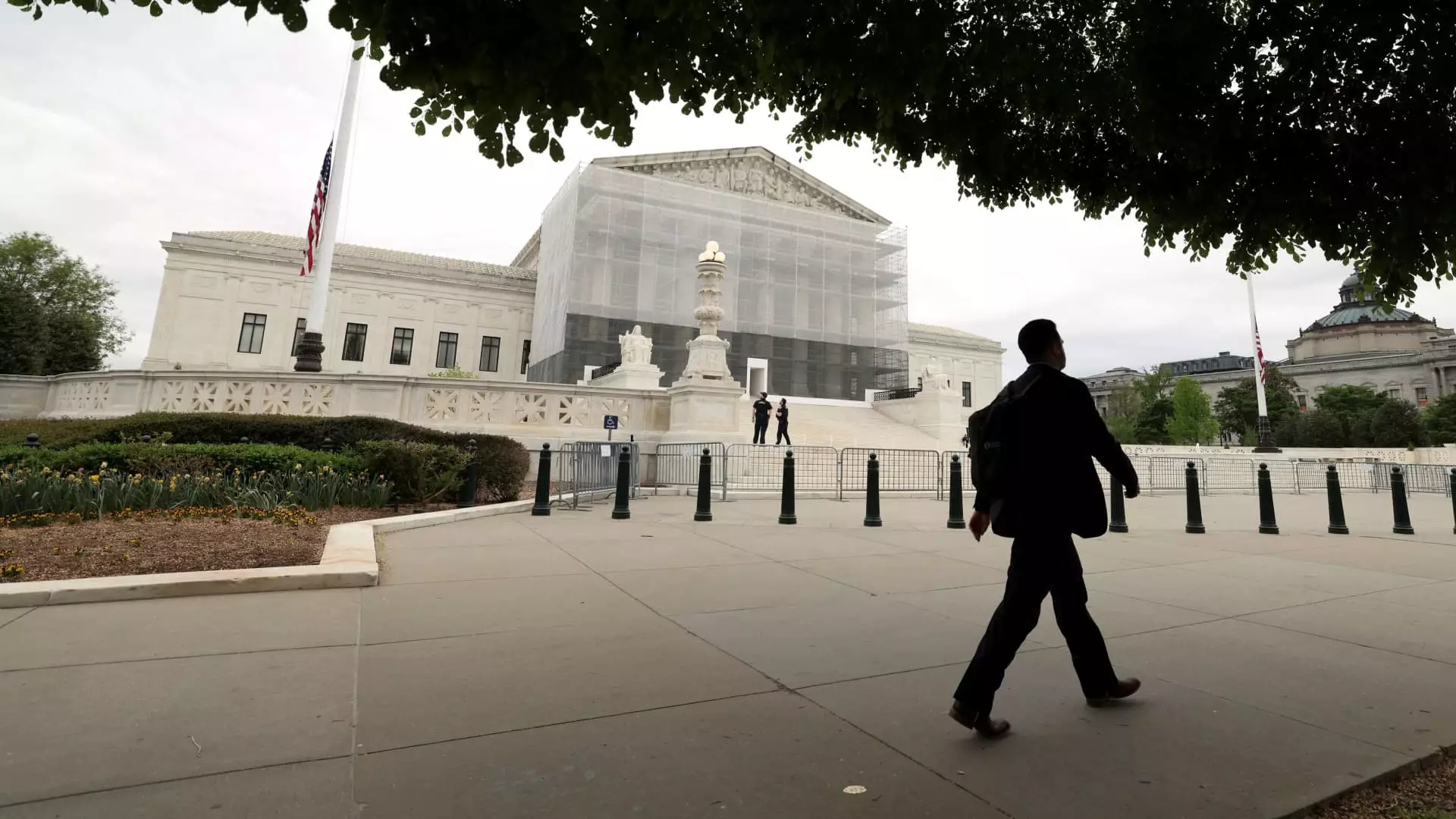In a significant turn of events, the Supreme Court has recently sided with Venezuelan nationals who faced imminent deportation, highlighting the glaring deficiencies within the framework of the Alien Enemies Act (AEA). The court’s 7-2 decision reveals an alarming reality: the Trump administration’s handling of immigration cases lacks the fundamental tenets of due process. By failing to afford these detainees adequate time and essential resources to contest their removal, the verdict becomes more than just a judicial win; it’s a powerful statement against governmental overreach and the erosion of individual rights. One must wonder: how can a nation pride itself on the rule of law if its very structure neglects justice for the vulnerable?
The implications of this ruling extend far beyond the immediate relief granted to the individuals involved. The court’s finding that a mere 24-hour notice to deportation is insufficient raises serious questions about the integrity of a system designed to ensure fair treatment—even for those accused of being part of a criminal organization. And here lies the crux of the matter: the need for a nuanced consideration that balances national security with basic human rights.
The Alien Enemies Act Under Scrutiny
Originally implemented during a time of war, the Alien Enemies Act was not crafted for modern immigration challenges. By invoking this antiquated legislative framework, the Trump administration casts a wide net over individuals who, while potentially linked to criminal activity, are still entitled to the protections outlined in our Constitution. Critics argue that such an approach can lead to stonewalling the rights of innocent individuals caught in a bureaucratic maelstrom, which this ruling illuminates sharply.
Furthermore, the court refrained from assessing whether the AEA was correctly applied, focusing solely on the procedural aspect of notice. Yet, this decision serves as a warning shot for future administrations—an insistence that due process must never be sidelined, regardless of the circumstances. As the judges pointed out, the stakes are particularly high, and it’s imperative for our judicial system to act swiftly to ensure that justice is not only done but is visibly seen to be done. The devil is often in the details, and the case at hand demonstrates just how those details can foreshadow a greater societal crisis.
The Role of Dissenting Voices
Despite the overwhelming majority supporting the ruling, dissenting voices from Justices Alito and Thomas temper the high hopes for ongoing judicial reform. Their skepticism echoes a long-standing narrative within conservative circles that demands an unwavering approach to national security, often at the expense of individual liberties. Alito’s reference to the district court’s actions as ‘inaction’ undermines a critical conversation about the balance between swift judicial response and thoughtful deliberation—a balance vital to the preservation of justice.
This perspective is indicative of an alarming trend where national security concerns often overshadow constitutional guarantees. It reflects an unfortunate reality where the rhetoric of “imminent danger” justifies extreme measures, leading to a weakening of the very foundations that uphold democratic ideals. The pregnant tension between security and liberty underscores the need for us to collectively reconsider the implications of this dichotomy in our legal system.
A Call for a Comprehensive Approach
Ultimately, this ruling, while a momentary victory for the Venezuelan nationals involved, calls for a much broader reconsideration of how America navigates the intersection of immigration and national security. Comprehensive immigration reform is not merely a political talking point; it is a moral imperative. We must foster a legal environment that does not resort to fearmongering or scapegoating but instead seeks to understand and address the complexities of modern-day migration issues.
As society grapples with these pressing concerns, let us advocate for policies that champion justice while recognizing the often blurred lines between security and humanity. The Supreme Court’s latest decision sparks hope, but it is far from a definitive resolution. It is a reminder that vigilance is required to uphold the principles of justice, dignity, and due process—a compelling lure for future generations striving to ensure that the scales of justice remain balanced.

Leave a Reply